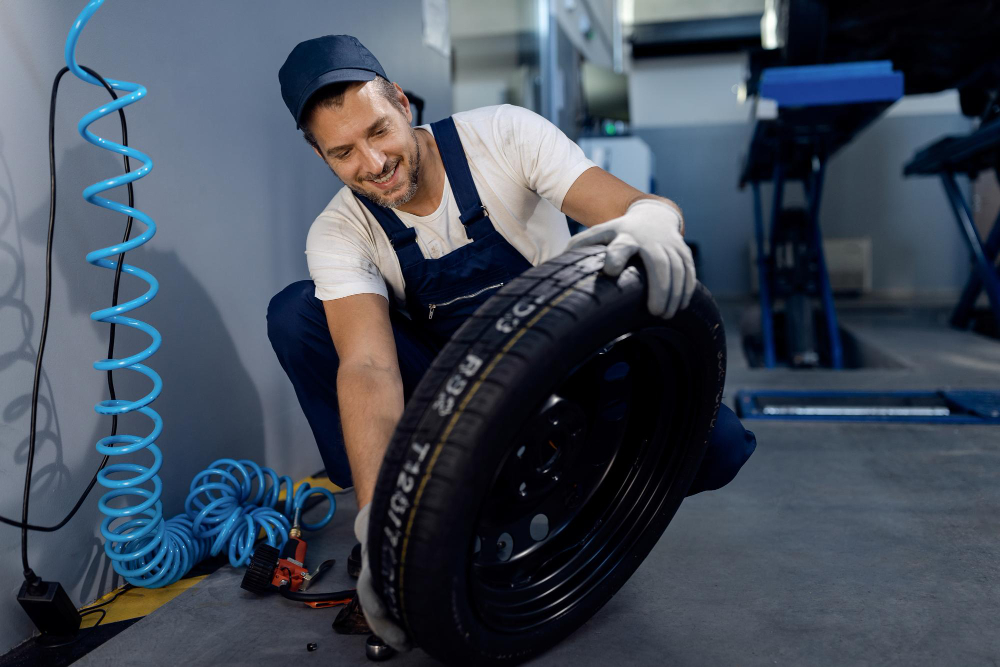
When it comes to car maintenance, the condition of your tires is paramount. Tires significantly impact fuel economy, overall driving comfort and the safety and performance of your car. For your ride to be safe, you must know when to replace your tires. Critical warning signs indicate that it might be time to contact us for new tires.
1. Tread wear
Visible tread wear is the most obvious indicator that your tires need to be replaced. When the tread is reduced to 2/32 of an inch, it is legally compulsory to replace the tires. The penny test is a simple tool to gauge this: Place a head-down Lincoln cent into the tread. It's time for new tires if the top of Lincoln's head is visible through your tread depth. Even wear across the tire is typical, but uneven wear could suggest alignment or suspension issues that need to be addressed by your mechanic.
2. Bulges and blisters
As the outer surface of a tire weakens over time, bulges or blisters can begin to form, extending outward from the rest of the surface. These weak spots can cause sudden blowouts if left unchecked. Regularly inspect your tires for any abnormal protrusions or irregularities in the sidewall. If you notice these issues, replacing the tire immediately is crucial to prevent a potential accident.
3. Vibrations
While some vibrations can be expected on rough roads, excessive trembling or shaking, especially at higher speeds, can indicate serious tire issues. It could indicate that a tire is misaligned, unbalanced, or has some internal damage not visible externally. If the usual balancing and alignment checks don't stop the vibrations, one or more of your tires are beyond repair and must be replaced.
4. Cracks in the sidewall
Check the sides of your tires for any visible cracks or cuts. This can indicate that your tires have developed leaks or are about to. Cracks in the sidewall can compromise the tire's structural integrity, leading to slow leaks or even a blowout under the right circumstances. If you see any such damage, don't hesitate to consult us for advice.
5. Age of the tires
Even if your tires don't seem worn out, rubber deteriorates with time. Regardless of the miles driven, most tire manufacturers advise replacing tires every six years since the material deteriorates and can shatter under pressure. To determine whether it's time for a replacement due to age, check the tire's sidewall for the manufacture date, represented by a four-digit code (the first two numbers denoting the week and the final two the year of manufacture).
If you notice any of these warning signs, it's crucial to contact us immediately. Tires in poor condition can dramatically increase the risk of accidents. We can thoroughly inspect and recommend the best options for tire brands and models suited to your vehicle and driving habits. Don't wait until it's too late—ensuring your tires are in good condition is essential for your safety on the road. Remember, it's always better to be safe than sorry when it comes to tires.